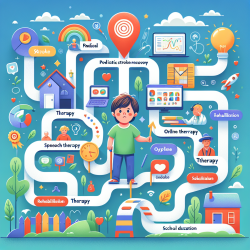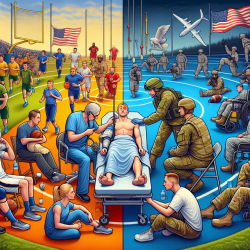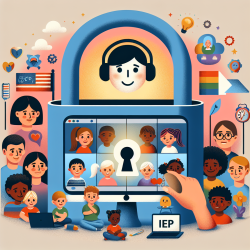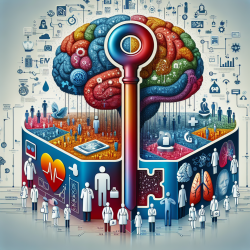As a speech-language pathologist committed to data-driven decision-making, I am always on the lookout for research that can enhance our therapeutic practices and improve outcomes for children. A recent study titled Factors Influencing Recovery From Pediatric Stroke Based on Discussions From a UK-Based Online Stroke Community: Qualitative Thematic Study offers valuable insights that can significantly impact our approach to pediatric stroke rehabilitation.
This qualitative thematic analysis explored posts from a UK-based online stroke community to identify the main barriers and facilitators to recovery from pediatric stroke. The study divided these factors into four key areas: medical, physical, emotional, and social.
Medical Factors
- Comorbidities: Epilepsy and depression were commonly cited as barriers to recovery. The additional diagnosis of epilepsy, in particular, was a significant challenge for both survivors and their families.
- Medical Interventions: Speech and language therapy, physiotherapy, and regular exercise (especially swimming) were identified as critical facilitators. However, long waiting times to access these services were a noted drawback.
Physical Factors
- Fatigue: Fatigue emerged as the most commonly reported physical barrier, affecting both short-term and long-term recovery. It often exacerbated other stroke-related disabilities.
- Pain: Chronic pain, including headaches and muscle cramps, was a long-term barrier to recovery. Cold weather was found to exacerbate these symptoms.
- Neurological Sequelae: Memory loss, confusion, and dizziness were persistent issues that hindered recovery.
Emotional Factors
- Positivity: Maintaining a positive outlook was crucial for recovery, especially for adult survivors. Humor and engaging in fun activities, such as music, also played a significant role.
- Grief and Bereavement: Both survivors and their families experienced a sense of loss and grief for the person they once were, which impacted emotional recovery.
- Fear and Anxiety: Fear of another stroke and uncertainty about the future were common barriers. However, adult survivors emphasized the importance of acceptance and moving forward.
- Behavioral Problems: Mood swings, anger, and frustration were frequently reported, affecting both short-term and long-term recovery.
Social Factors
- Support Network: A strong support network from family, friends, and third-party organizations was crucial for recovery.
- Loneliness: Isolation from peers, friends, and society was a significant barrier. This feeling of loneliness persisted into adulthood for many survivors.
- Exclusion or Bullying: Bullying and social restrictions were common issues that negatively impacted recovery.
- Hidden Disabilities: The lack of understanding and acknowledgment of hidden disabilities by medical professionals and the public was a major barrier.
- Education and Employment: Interaction with educational services was vital for reintegration into society. Concerns about driving and obtaining travel insurance were also noted as long-term barriers.
The study's findings underscore the importance of a holistic approach to pediatric stroke recovery, addressing not just the medical and physical aspects but also the emotional and social dimensions. As practitioners, we can implement these insights by advocating for comprehensive care plans that include mental health support, social integration programs, and continuous education for families and caregivers.
For those interested in delving deeper into this research, I highly encourage you to read the original paper: Factors Influencing Recovery From Pediatric Stroke Based on Discussions From a UK-Based Online Stroke Community: Qualitative Thematic Study.










